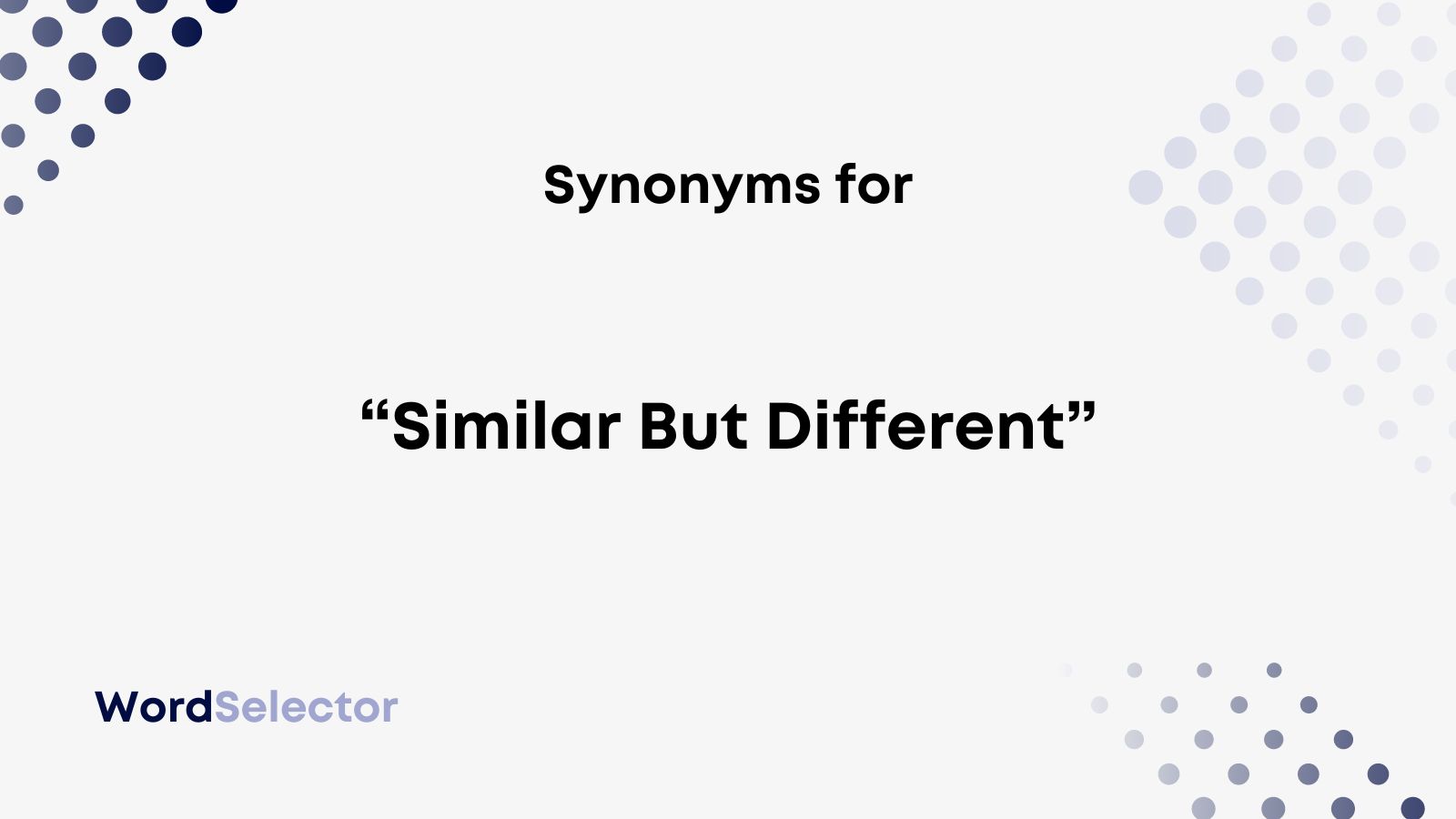You want to express that two things are very similar in a number of ways. However, they are still very distinct. Is there a word in English that encapsulates this idea?
Below, we’ve compiled a list of words that you can use to point out the similarities between two different things. So, read on!
“Similar But Different” Synonyms
- Tantamount
- Analogous
- Akin
- Related
- Alike
- Similar
- Resonates
- Parallel
- Resembling
- Homogenous
- Kindred
- On par
KEY TAKEAWAYS
- When two things are “tantamount,” they are essentially the same or equivalent but not quite identical.
- “Analogous” means two things can be compared to make a point.
- You can use “akin” to say that two things relate, although they aren’t exactly the same.
Keep reading to see how we use our top three synonyms for “similar but different” in some helpful example sentences.
Tantamount
“Tantamount” is a good synonym for something that is different but similar to another thing.
The Cambridge Dictionary defines “tantamount” as “being almost the same or having the same effect as something, usually something bad.”
“Tantamount” is derived from the Anglo-French phrase, “tant amunter” meaning “amount to as much.” As you can see from the above definition, the word “tantamount” often has negative connotations.
Generally, people use this term to compare two things in order to show the seriousness of a certain claim or behavior.
To see what we mean, consider the examples below:
The implication you’re making is tantamount to an accusation.
His behavior is tantamount to abject prejudice.
Analogous
According to Merriam-Webster, “analogous” means “similar or comparable to something else either in general or in some specific detail” and “similar in a way that invites comparison.”
Therefore, “analogous” is another good word for “similar but different.” After all, something is “analogous” if it is similar enough to be compared to something else. However, the two things being compared will never be identical.
Usually, you will compare two things to make some important point or commentary. However, the word “analogous” has no distinctly positive or negative connotations. Therefore, it can be used to make a positive, a negative, or a perfectly neural comparison between two things.
Have a look at the following examples:
The relationship between the Queen and her subjects was analogous to that of a coddling mother and her children.
The old man’s spectacles were analogous to two telescope lenses affixed to his face.
Akin
Merriam-Webster defines “akin” as “essentially similar, related, or compatible.”
Therefore, things that are “akin” to one another are similar yet different. In other words, they relate but are not precisely the same.
When you break this alternative down into its syllables, you can see why we use it to refer to things that are related in some way: “a-kin.” “Kin” usually refers to one’s blood relatives. Obviously, we are all similar to our family members in some ways, yet different in some ways as well.
Therefore, “akin” suits the idea of “similar but different” very well, as illustrated in the following examples:
I was feeling something akin to shame, but I cannot deny that it was accompanied by some glee.
Her values are akin to mind, although we have very different ideas of how to enforce them.

